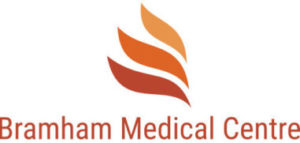If you have a complaint or concern about the service you have received from the doctors or any of the staff working in this GP surgery, please let us know. This includes Primary Care Network staff working as part of our GP surgery. We operate a complaints procedure as part of an NHS system for dealing with complaints. Our complaints system meets national criteria.
To download our complaints form & complaints procedure, click here
How to complain
We hope that most problems can be sorted out easily and quickly when they arise and with the person concerned. For example, by requesting a face-to-face meeting to discuss your concerns.
If your problem cannot be sorted out this way and you wish to make a complaint, we would like you to let us know as soon as possible. By making your complaint quickly, it is easier for us to establish what happened. If it is not possible to do that, please let us have details of your complaint:
- Within 6 months of the incident that caused the problem; or
- Within 6 months of discovering that you have a problem, provided this is within 12 months of the incident.
Complaints should be addressed to the GP surgery team verbally or in writing to Complaints Manager, Mrs Pauline Tidswell. Alternatively, you may ask for an appointment with the Complaints Manager to discuss your concerns. She will explain the complaints procedure to you and make sure your concerns are dealt with promptly. Please be as specific as possible about your complaint.
What we will do
We will acknowledge your complaint within three working days. We will aim to have investigated your complaint within ten working days of the date you raised it with us. We will then offer you an explanation or a meeting with the people involved, if you would like this. When we investigate your complaint, we will aim to:
- Find out what happened and what went wrong.
- Make it possible for you to discuss what happened with those concerned, if you would like this.
- Make sure you receive an apology, where this is appropriate.
- Identify what we can do to make sure the problem does not happen again.
Complaining on behalf of someone else
We take medical confidentiality seriously. If you are complaining on behalf of someone else, we must know that you have their permission to do so. A note signed by the person concerned will be needed unless they are incapable (because of illness) of providing this.
Complaining to West Yorkshire ICB
We hope that you will use our Practice Complaints Procedure if you are unhappy. We believe this will give us the best chance of putting right whatever has gone wrong and an opportunity to improve our GP surgery.
However, if you feel you cannot complain directly with the surgery then you can contact West Yorkshire Integrated Care Board by contact them on Formal complaints :: West Yorkshire Health & Care Partnership (icb.nhs.uk)
Unhappy with the outcome of your complaint?
If you are not happy with the way your complaint has been dealt with by the GP surgery and West Yorkshire ICB and would like to take the matter further, you can contact the Parliamentary and Health Service Ombudsman (PHSO). The PHSO makes final decisions on unresolved complaints about the NHS in England. It is an independent service which is free for everyone to use.
To take your complaint to the Ombudsman, visit the Parliamentary and Health Service Ombudsman website or call 0345 015 4033
Need help making a complaint?
If you want help making a complaint, Healthwatch Hounslow can help you find independent NHS complaints advocacy services in your area.
Alternatively, POhWER is a charity that helps people to be involved in decisions being made about their care. Call POhWER’s support centre on 0300 456 2370 for advice.
To view our complaints procedure and download a complaintds form, please click here
